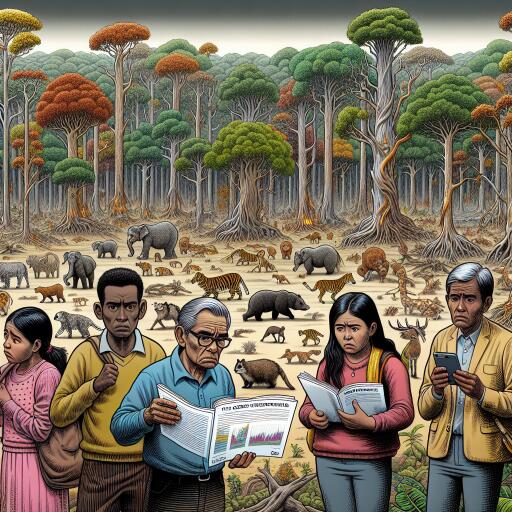
Challenging the Single-Value Approach to Forests in Climate Policy: Insights from IUFRO’s New Report
The escalating concerns over climate change have led to a significant shift in how forests are valued, pushing their complex roles to the sidelines in favor of viewing them mainly as carbon sinks. This change, highlighted in a groundbreaking report, signals a precarious trend in forest governance, urging a reevaluation to embrace forests’ multifaceted contributions to biodiversity and social welfare.
The report, presented at the 19th Session of the United Nations Forum on Forests, marks the first comprehensive evaluation of international forest governance since 2010. As the outcome of extensive research by the International Union of Forest Research Organizations (IUFRO), it sheds light on the evolving landscape of forest politics, identifying both progress and persistent challenges in slowing deforestation and promoting sustainable management.
With climate change, biodiversity erosion, and socio-economic disparities growing, there’s an urgent call for policies that not just curb deforestation but also recognize and protect the myriad benefits forests offer to ecosystems and communities. The analysis from IUFRO underscores a critical pivot from purely market-driven approaches towards more equitable, long-term solutions in forest governance.
The commodification of forests for their carbon storage capability has spurred market mechanisms like carbon trading and initiatives aimed at zero deforestation. However, these strategies often prioritize short-term financial returns over lasting ecological integrity and fairness. The importance of state-led regulations and community-driven projects emerges as pivotal in fostering sustainable and just forest management practices.
Furthermore, the rush to set ambitious climate targets has led to what some experts call a “Target Olympics,” spotlighting the necessity of more nuanced measures of success in forest governance. Beyond the simple metrics of deforestation rates, there’s a pressing need to account for the complex interactions between humans and nature, recognizing the full spectrum of goods and services forests provide.
The report advocates for a more inclusive approach to evaluating the effectiveness of international forest governance, emphasizing equity, justice, and the protection of indigenous and local communities’ rights. As we navigate the challenges of global environmental governance, the insights from this comprehensive review beckon policymakers to broaden their perspective, valuing forests not just as carbon stores but as vital, irreplaceable pillars of ecological and social systems.
In summary, the call is clear: to ensure a sustainable future, we must embrace a multidimensional view of forests, integrating long-term ecological and social goals into the heart of forest governance. As we move forward, the lessons from this report could guide us toward a path where forests are cherished for all the manifold benefits they bestow.





Leave a Reply